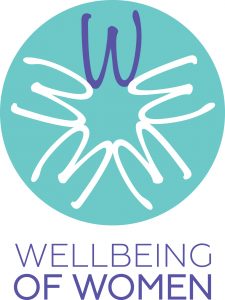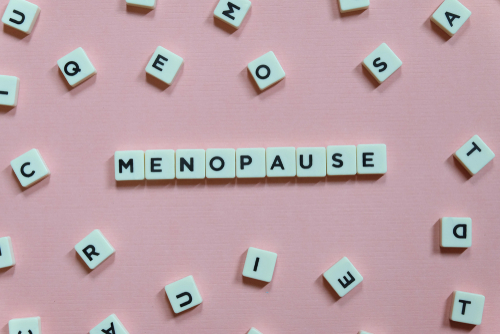Article provided by Wellbeing of Women
What is the menopause?
The menopause is a natural part of ageing for women that usually occurs between 45 and 55 years of age, with the average age being 51 in the UK. The menopause is defined by the lack of a period for 12 months or more. Periods will eventually stop, however only about ten per cent of women experience an abrupt transition. Often, there is a delay between the onset of menopausal symptoms and the menopause itself, known as perimenopause. During this time, it is common to experience irregular, late or skipped periods, as a woman’s oestrogen levels decline, until they stop all together. On average the perimenopause lasts four years but can last up to 12 years.
Premature ovarian insufficiency
Occasionally the menopause happens before the age of 40 and is known as Premature Ovarian Insufficiency (POI). Premature ovarian insufficiency can be caused by chemotherapy or radiotherapy, or if the ovaries are removed during an operation. It can occasionally be due to chromosome or gene problems or associated with autoimmune diseases such as diabetes or thyroid disease. However, most of the time, no cause is found.
What are the symptoms?
For some women this can be seen as a liberating time, signalling another stage in life to be embraced. But it can also be a challenging time and have a physical and emotional impact. Every woman’s menopause is different and personal to them, so the duration and severity of symptoms varies from woman to woman. Common symptoms include:
- hot flushes
- night sweats
- vaginal dryness and discomfort during sex
- difficulty sleeping
- mood swings or anxiety
- loss of interest in sex
- headaches
- weight gain
Hot flushes and night sweats are caused by the constriction and dilation of blood vessels. These symptoms which often begin in the late 40s, last for five to seven years (or more) and are estimated to be experienced by over 75 per cent of women.
Treatments
If you are experiencing menopause symptoms, talk to your GP. There are a variety of treatment options available.
Hormone replacement therapy (HRT) is proven to be an effective treatment for hot flashes, vaginal dryness, osteoporosis, joint pain, and more. It works by replacing the hormones that the body lacks during the menopause. Oestrogen is the core ingredient and it is this that relieves symptoms like hot flushes, night sweats and helps to keep bones strong. There are over 50 different types of HRT available, so speak with your GP about which is the best option for you. There are other non-hormonal and holistic treatments available too. Staying health with the right diet and exercise is key to managing menopause symptoms.
Menopause in the workplace
There are more than 3.5 million women aged 50 to 65 employed in the UK*. More than half of women report that working through their symptoms is difficult, with a staggering ten per cent of women completely stopping work due to their symptoms. Furthermore, the Faculty of Occupational Medicine reports that the majority of women are unwilling to disclose menopause-related health problems to line managers, leaving them to suffer in silence.
The European Menopause and Andropause Society (EMAS) has come up with some suggested working conditions to support women undergoing the menopause:
- Review control of workplace temperature and ventilation and see how they might be adapted to meet the needs to individuals.
- Have a desktop fan in an office or obtain a workspace near an opening window or away from heat.
- Consider flexible working hours.
- Provide access to cold drinking water in all work situations.
- Ensure access to wash room facilities, including when travelling or working off site.
The menopause is a natural and temporary stage in a woman’s life, and it is important to note that everyone will have a different experience. If you are experiencing symptoms, don’t suffer in silence. Talk to your manager to see what can be done to make you more comfortable at work. Furthermore, there are numerous treatment options available, so be sure to talk to your GP about the best option for you.
How Wellbeing of Women is helping
Wellbeing of Women is currently at the forefront of research into menopause, tackling issues resulting from menopause, such as vaginal dryness and urinary tract infection, which are common in post-menopausal women. We funded a team at Kings College London to develop new CBT methods of treating menopausal symptoms in women, particularly hot flushes and night sweats. This is now being trialled in a number of organisations which has proved the major impact that the menopause can have on a woman’s working life. The project will also help managers and employers to support their female staff of menopausal age.
We are also currently investing funds into two different projects aimed at researching the key causes of early menopause.
 About Wellbeing of Women
About Wellbeing of Women
Founded 55 years ago, Wellbeing of Women is one of the only charities finding cures and treatments across the breadth of female reproductive health, including pregnancy & childbirth, fertility, gynaecological cancers, and overlooked areas like endometriosis, PCOS and the menopause. Many of the routine tests and treatments that form everyday clinical practice can be traced back to our work, such as the use of ultrasound in pregnancy and the importance of taking folic acid for the health of the unborn baby. We also funded Professor Henry Kitchener, who linked HPV to cervical cancer which led to the HPV vaccination program in schools, making cervical cancer preventable for the first time. Only 2.48 per cent of publicly funded research is dedicated to reproductive health and childbirth which makes our work vital.
*The Office of National Statistics (2013)
WeAreTheCity covers the latest female centric news stories from around the world, focusing on women in business, careers and current affairs. You can find all the latest gender news here.
Don’t forget, you can also follow us via our social media channels for the latest up-to-date gender news. Click to follow us on Twitter, Facebook, Instagram, and YouTube.









